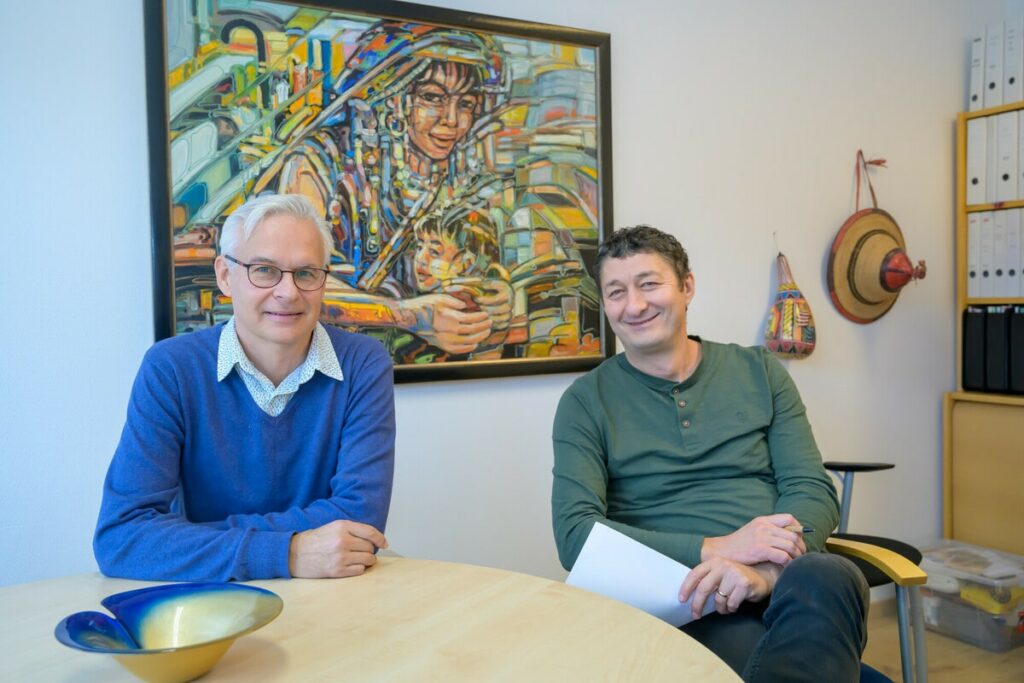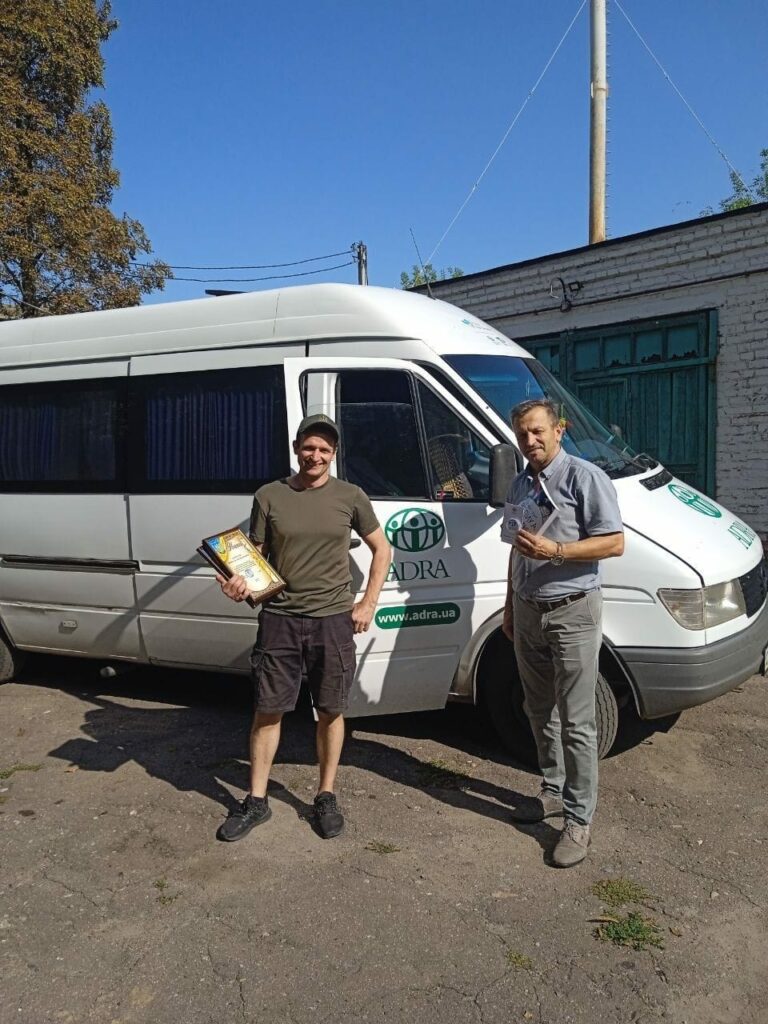ADRA Europe Will Scale Up Aid to Ukraine
A meeting in Oslo addressed the need for humanitarian and development aid.
October 16, 2023 | Oslo, Norway | Tor Tjeransen, Norwegian Union Conference, and Adventist Review
The Adventist Development and Relief Agency (ADRA) network is preparing to take an even greater role in delivering humanitarian aid to Ukraine. This became clear after a high-level meeting to discuss coordination of the humanitarian response to the crisis in Ukraine was held in Oslo, Norway, on September 26.
ADRA Ukraine is running a substantial operation, particularly in eastern Ukraine, to help the victims of the current war. Thomas Petracek, head of programs and emergency response at the ADRA Europe office, expects this operation will increase significantly in the next few months.

Thomas Petracek (left) in conversation with ADRA Norway program director Elidon Bardhi at the Oslo City Hall on September 26. [Photo: Tor Tjeransen/Adventist Media Exchange (CC BY 4.0)]
Humanitarian Needs in Ukraine
The meeting took place one year to the day after the first meeting in the series was held in Brussels, Belgium. At that time the meeting brought together representatives of the Ukrainian government, EU member states, key donors, United Nations organizations, the International Committee of the Red Cross, the World Bank, and EU-funded humanitarian organizations. The goal was to ensure a sustainable, effective, efficient, and comprehensive response to the humanitarian needs in Ukraine, including both humanitarian and development aid. The meeting in Oslo brought together even broader participation than the first meeting.
In his opening address, European commissioner for crisis management Janez Lenarčičin his opening address highlighted the importance of “sustaining humanitarian funding, partnership with local actors, humanitarian mine action, and the balance between humanitarian aid and recovery,” according to the ECHO website in a news article published on the date of the meeting.
“As a leading humanitarian donor in Ukraine, the EU has invited key humanitarian stakeholders to discuss the most pressing needs of Ukrainian people,” Lenarčič stated.

Yuri Zarko (right), mayor of Bilopillya in Ukraine, presented ADRA with a certificate from the municipality, expressing gratitude for the humanitarian agency’s work. [Photo: ADRA Ukraine/Adventist Media Exchange (CC BY 4.0)]
ADRA Operations in Ukraine
The ADRA operation in Ukraine has already invested US$18 million, supported by various government agencies. At the meeting in Oslo, it became clear that the international community will increase its funding of aid to Ukraine. ADRA will play an important role in this work and will be applying for funding for aid projects ADRA Ukraine is particularly well suited to implement, organization leaders said.
“Most likely, ADRA will concentrate on three to four areas close to the front line, with a focus on health and education, but also begin working on rehabilitation,” Petracek said after the meeting.
He noted that there is a trend within the aid sector that local non-government organizations are playing a more important role in the implementation of aid. ADRA Ukraine as a national NGO is well suited to fulfill this role. ADRA Ukraine has currently about 300 employees and hundreds of volunteers across the country.
ADRA Europe donor offices like ADRA Czech Republic, ADRA Denmark, ADRA Germany, and ADRA Slovakia are now in dialogue with their governments and will most likely receive funding for aid projects in Ukraine.
To receive EU funding through the European Commission’s Civil Protection and Humanitarian Aid Operations department (ECHO), the ADRA offices must be certified. ADRA Czech Republic, ADRA Denmark, and ADRA Germany are already certified. ADRA Norway is in the process of becoming certified.
The original version of this story was posted by the Norwegian Union Conference.